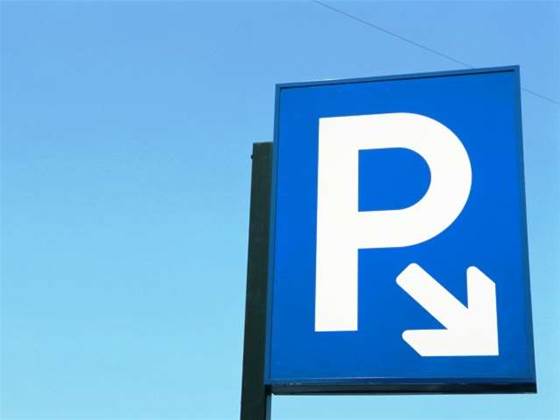Western Australia’s Public Transport Authority has confirmed 40 percent of fines it hands out across the state’s 51 train station car parks are eventually annulled, with the state’s auditor general blaming a laborious smart parking system.

In July 2014 the PTA launched the ‘SmartParker’ system, which allows commuters to pay for $2.00 weekday parking at train stations using the same public transport smartcard they use for trains and buses.
SmartParker users can register up to three vehicles to their card account, and tap on to a reader at the entrance of a car park to electronically pay their fee.
Parking inspectors then use a mobile-based application to photograph the rego plates of all the cars present in a bay, to check them against SmartParker's records of who has and hasn’t paid.
But the system has led to the PTA issuing an average of 200 parking infringement notices every day, or more than 50,000 a year.
What’s more, the auditor general revealed yesterday, 40 percent of these are eventually overturned when challenged by the recipient.
While PTA systems are not sophisticated enough to trace the precise origins of the incorrect fines, the auditor general says it is likely that the high failure rate is driven by the complex and user-unfriendly SmartParker system and the dubious data handling process that supports it.
While drivers can register three cars to their SmartParker account, only one can be listed as ‘active’ at any one time, and if a user happens to forget to change their preferred vehicle on a given day, they will risk incurring a fine.
There are also several points in the process where human error can lead to the system buckling, the auditor general said.
These include the driver mis-typing their licence plate details, an inspector recording the same details incorrectly on a handwritten ticket, or a PTA officer entering the wrong details into a separate infringements management system when those paper tickets are delivered back to central office.
Any of these mistakes will lead to a ticket, said the auditor, and the rate of failure risks seriously undermining commuters’ faith in public transport, and wastes everyone’s time.
“While prevention of these errors rests first and foremost with the public, the PTA has a responsibility to contribute to prevention through good communication and system processes.
“The appeals process is time consuming for the appellant, costly for the PTA and is damaging to the public’s satisfaction with public transport,” said the report, handed down yesterday.
The auditor had urged the agency to automate at least some of the time consuming and error-ridden processes behind the parking system.
The agency has insisted it is working towards better processing, and will implement the auditor’s recommendations as it moves towards “the next generation of parking technology which will involve back office validation, issuing and processing of parking infringements”.


_(36).jpg&h=140&w=231&c=1&s=0)


.png&h=140&w=231&c=1&s=0)





 iTnews Executive Retreat - Security Leaders Edition
iTnews Executive Retreat - Security Leaders Edition
 iTnews Cloud Covered Breakfast Summit
iTnews Cloud Covered Breakfast Summit
 The 2026 iAwards
The 2026 iAwards












_(1).jpg&h=140&w=231&c=1&s=0)



